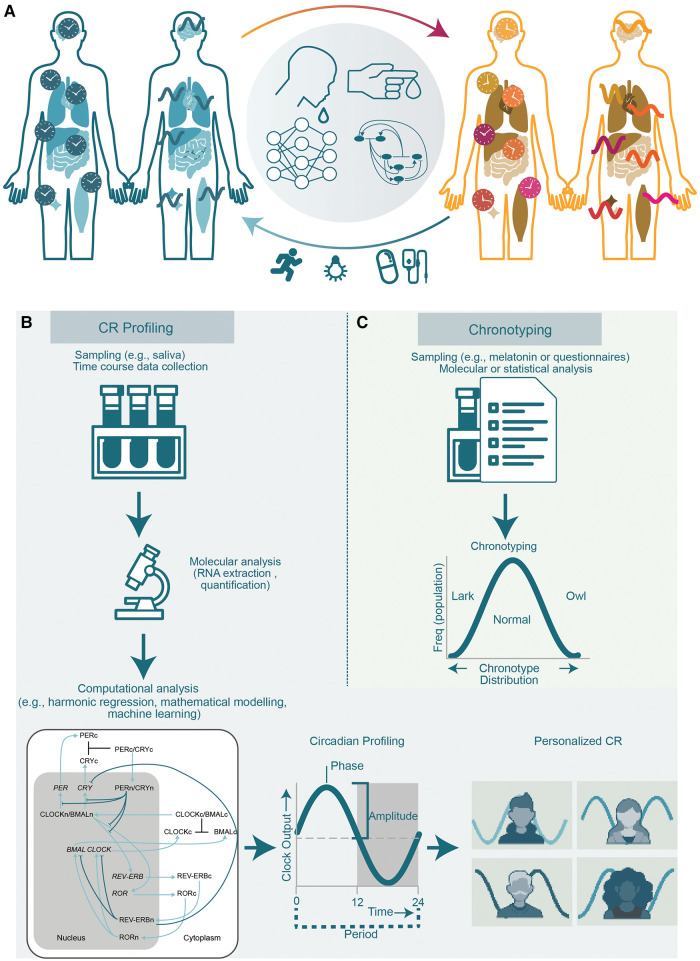Figure 1.
The circadian system and methods for determining CRs and chronotyping. (A) The role of the circadian clock in health and disease. A proper functioning clock ensures correct timing of physiological events such as sleep/wake cycles and contributes to sustain a healthy life (left). The disruption of CRs (right) is associated with numerous diseases including sleep disorders, neurodegenerative diseases, and cancer. Various circadian relevant clinical applications are being studied and implemented to diminish the negative effects of circadian disruption e.g., by the usage of zeitgebers like bright light therapy or physical exercise to reset the clock, and timely administration of drug compounds. For this purpose, methodologies (centre) using molecular data retrieved from time course collection of biological samples for e.g., from blood or saliva in combination with computational and mathematical modelling of the clock network are needed to generate a personalized profile of the CR. (B) CR profiling by repetitive and representative sampling, molecular and computational analysis to generate a personalized circadian profile. (C) Molecular analysis of biological samples or questionnaires and correlation to populational data for typification of an individual into chronotypes.

